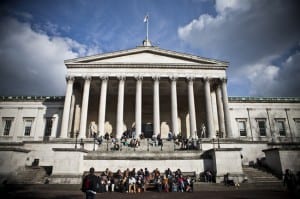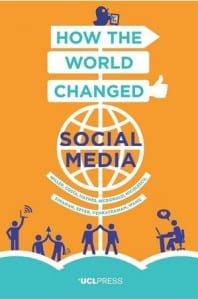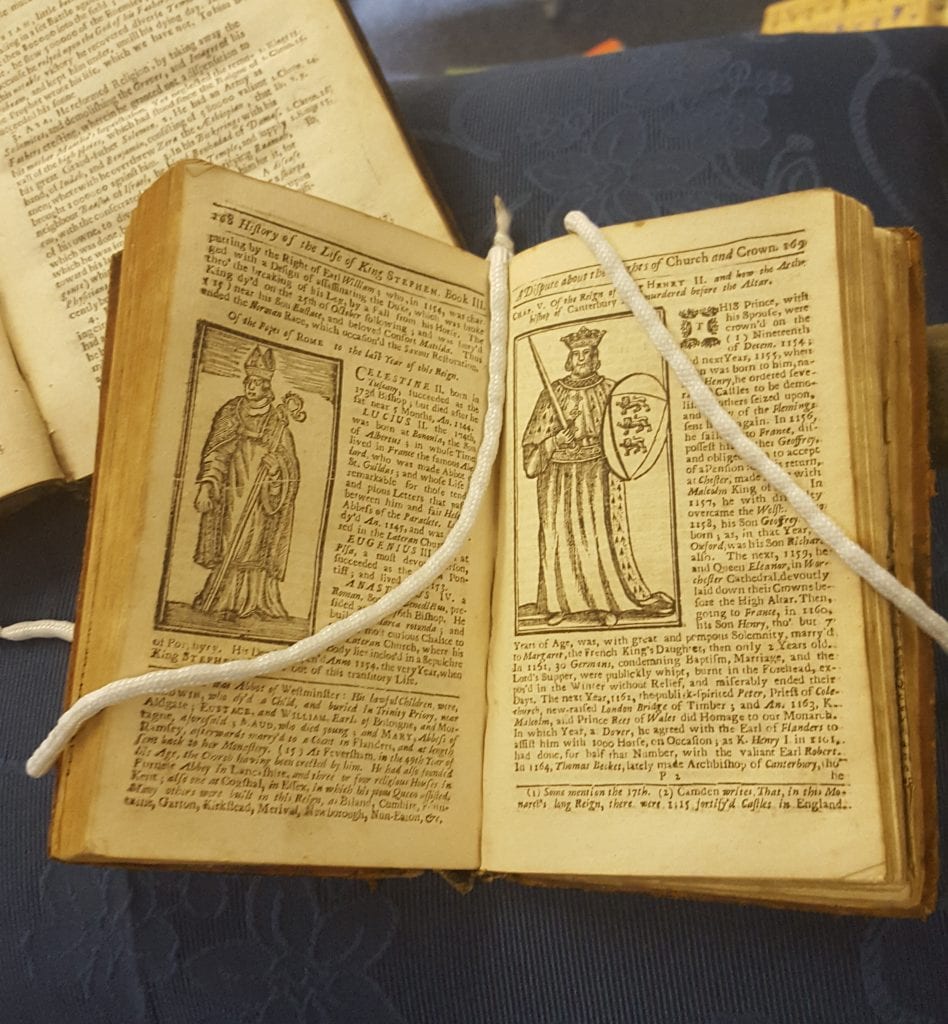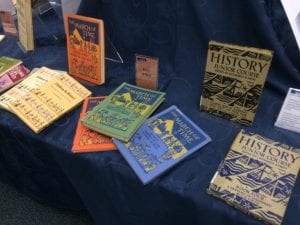Sharing innovation across UCL Library Services
On 12 July, I attended the Staff Afternoon at the UCL Institute of Education’s Newsam Library and Archives. This is based on an event which the IOE has run in previous years, which gives staff a chance to tell colleagues about their work. The IOE used lightning sessions (10 minute informal presentations) to do this and the emphasis was on making them both informative and light-hearted.
What did I learn? Well, amongst many things, I heard about a year in the life of the IOE Library and Archives; and quite a lot about detective fiction which is set in educational establishments. I saw how useful the Erasmus program is, enabling members of staff to travel to other European countries to learn best practice. The ORSEM database, of STEM (Science, Technology, Engineering, Medicine) exam papers, was described in some detail. This was very timely, because I had just answered a copyright query for the IOE Library and Archives on the ORSEM database.  External speakers from elsewhere in UCL Library Services were also invited to speak. We had a demonstration of contrasting forms of library video from across UCL; a detailed look at important research in the UCL Records Office about the early history of race and religion amongst University College’s first students; and an overview of the first year of publishing activity from UCL Press.
External speakers from elsewhere in UCL Library Services were also invited to speak. We had a demonstration of contrasting forms of library video from across UCL; a detailed look at important research in the UCL Records Office about the early history of race and religion amongst University College’s first students; and an overview of the first year of publishing activity from UCL Press.
The afternoon was an excellent example of how to highlight best practice and build teams. Congratulations to Bernard Scaife and his colleagues for an enjoyable day, where I saw how innovation in practice can help shape the future development of libraries.
 The theme of innovation was continued in the evening when I attended the Chair of UCL Council’s Dinner in the Jeremy Bentham Room. This is an annual dinner hosted by the Chair of Council, Dame DeAnne Julius. The Chair of Council highlighted a number of developments across the whole of UCL, which she felt contributed to the growing success and importance of the University to Higher Education across the globe. To my great delight, one of the innovative initiatives to which the Chair drew attention was the first year of publishing in UCL Press. DeAnne underlined that the Press was the UK’s first fully Open Access University Press and that this was in the spirit of UCL’s tradition of radical, disruptive thinking. She highlighted the number of downloads that UCL Press monographs are receiving – over 30,000 in year 1 – and the large number of countries – over 160 – in which these downloads are being made.
The theme of innovation was continued in the evening when I attended the Chair of UCL Council’s Dinner in the Jeremy Bentham Room. This is an annual dinner hosted by the Chair of Council, Dame DeAnne Julius. The Chair of Council highlighted a number of developments across the whole of UCL, which she felt contributed to the growing success and importance of the University to Higher Education across the globe. To my great delight, one of the innovative initiatives to which the Chair drew attention was the first year of publishing in UCL Press. DeAnne underlined that the Press was the UK’s first fully Open Access University Press and that this was in the spirit of UCL’s tradition of radical, disruptive thinking. She highlighted the number of downloads that UCL Press monographs are receiving – over 30,000 in year 1 – and the large number of countries – over 160 – in which these downloads are being made.

The new Student Centre: Nicholas Hare Architects
In his response, the Provost also highlighted a number of important developments which will contribute to the growing success of UCL. One of the most significant is the creation of the new Student Centre, which is timetabled to open in the academic session 2018-19. This will deliver an extra 1,000 learning spaces into UCL and these will be managed, as all centrally-provided learning spaces are, by the Library. The Provost highlighted just what a tremendous impact the new Student Centre will have on the Student Experience.
12 July 2016 was a memorable day for me. Earlier that morning I had watched the livestream of the Town Meeting discussing the impact on UCL staff and students of the recent EU Referendum result. UCL is providing copious information, which I have shared here on the LibNet Blog. UCL truly values all its staff and students and will fight for the best outcome in the forthcoming negotiations. The IOE’s Staff Afternoon underlined the importance of innovative staff development and sharing ideas – a great model for everyone to follow. The Council Dinner in the evening made me realize once again just how valued UCL Library Services is in the UCL community and how proud I am to be a small part of the work which all colleagues in the Library contribute to our success.
Paul Ayris
Director of UCL Library Services
Filed under Communication, Communication, Outreach and Open Science, European Developments, Space Management, Staff, Equality, Diversity and Inclusion, Student Experience, The Pro-Vice-Provost's View, User experience
Tags: Brexit, IOE, UCL Press
No Comments »
 Close
Close






